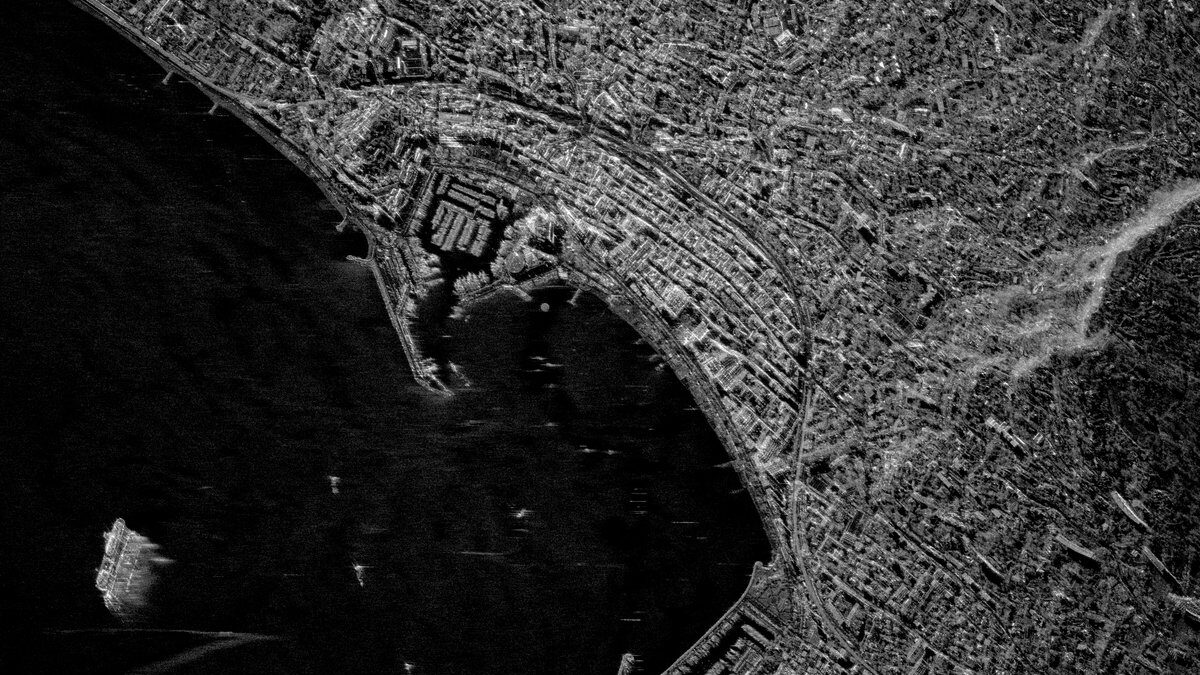The National Reconnaissance Office (NRO) has awarded new two-year contracts to three leading providers of synthetic aperture radar (SAR) satellite imagery: Capella Space, ICEYE US, and Umbra. An NRO spokesperson confirmed the contract extensions to Breaking Defense on Wednesday, marking the latest step in the agency’s ongoing efforts to leverage commercial radar capabilities.
The new contracts are part of the NRO’s Strategic Commercial Enhancements Broad Agency Announcement (SCE BAA) program, which originally commenced on January 20, 2022. According to the NRO, this latest extension applies to Stage III – Commercial Radar Capabilities under the SCE BAA framework, with the new performance period running from July 2024 through July 2026.
“NRO’s Commercial Systems Program Office provided a two-year period of performance extension under the SCE BAA Stage III initiative,” the spokesperson explained, emphasizing the agency’s continued interest in commercial SAR solutions as critical tools for national security and intelligence gathering.
A Competitive Landscape
The original group of SAR providers selected for the NRO’s study contracts included five firms: Capella Space, ICEYE US, and Umbra—all of whom secured Stage III extensions—alongside the U.S. division of European aerospace giant Airbus and Florida-based startup PredaSAR.
However, the competitive landscape has evolved significantly since those initial awards. Airbus has faced mounting financial pressures, particularly in its Space Systems business, leading the firm to announce in October 2023 that it would cut up to 2,500 jobs worldwide. Just this week, Reuters reported that Airbus finalized 2,043 job reductions, with more than half originating from the Space Systems division. These cuts have cast uncertainty over the company’s long-term position in the commercial SAR market.
Meanwhile, PredaSAR, once a promising U.S.-based startup focused on SAR technology, was dropped from the NRO’s contracts after its initial award expired in September 2023. Its parent company, Terran Orbital, abandoned plans for its dedicated SAR satellite constellation in October 2022 amid mounting financial struggles and significant debt. In a notable shift, Lockheed Martin acquired Terran Orbital on October 30, 2023, as part of its broader strategy to expand into satellite manufacturing and advanced space-based technologies.
Toward a Long-Term Strategy
Industry officials view the new Stage III contracts as a crucial bridge to the future, anticipating a transition from short-term study contracts to a more structured and enduring program of record. Senior NRO officials are reportedly pushing for this transition to be reflected in the fiscal year 2026 budget, signaling the agency’s intent to solidify its partnership with commercial providers.
While the NRO’s budget remains classified, industry insiders estimate that the agency has been allocating roughly $10 million annually to support approximately 15 study contracts across multiple domains, including SAR, radio frequency geolocation, and hyperspectral satellite imaging. This relatively modest investment has allowed the NRO to evaluate commercial technologies while preparing for larger-scale integration into its operational capabilities.
“From our perspective, it’s another sign that the Commercial Systems Program Office is committed to supporting SAR, and that they’re serious about it,” said Joe Morrison, vice president and general manager for remote sensing at Umbra, in an interview with Breaking Defense.
Morrison underscored the significance of the NRO’s ongoing support, noting that while a formal program of record has yet to materialize, the agency’s deliberate approach has been meaningful for commercial providers.
“And despite the fact that, to date, they have not yet been able to stand up a program of record, they are very concertedly, explicitly working to transition the study. In the meantime, they’re creating these additional phases that are substantive and very meaningful for the industry,” Morrison added.
The Growing Role of SAR Technology
Synthetic aperture radar technology has become increasingly vital for defense and intelligence missions due to its unique ability to capture high-resolution imagery regardless of weather conditions or time of day. Unlike optical sensors, SAR systems can penetrate cloud cover, operate at night, and provide detailed imaging of ground features and activities. This capability makes SAR particularly valuable for tracking military movements, assessing infrastructure damage, and monitoring environmental changes in conflict zones or disaster-stricken regions.
Commercial providers like Capella Space, ICEYE, and Umbra have led the way in developing advanced SAR technologies, offering cost-effective and agile solutions that complement the government’s traditional satellite reconnaissance programs. By leveraging these private-sector capabilities, the NRO aims to enhance its operational flexibility and improve its ability to deliver timely intelligence to decision-makers.
What’s Next?
The extensions under Stage III of the SCE BAA program are widely viewed as a positive signal for the SAR industry, but they also highlight the pressing need for a long-term funding commitment. Industry stakeholders remain optimistic that the NRO’s fiscal 2026 budget will include provisions for a more permanent program of record, aligning the agency’s commercial partnerships with its strategic priorities.
For now, the two-year contracts offer stability for Capella Space, ICEYE US, and Umbra, enabling these companies to continue advancing their SAR capabilities and demonstrating their value to the U.S. government. As the NRO works toward formalizing its commercial radar strategy, the stage is set for a new era of collaboration between the intelligence community and the private sector’s growing space industry.

